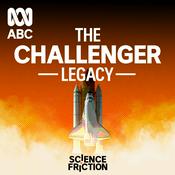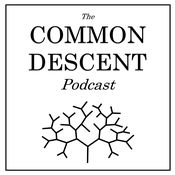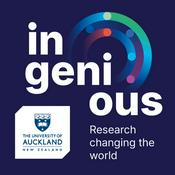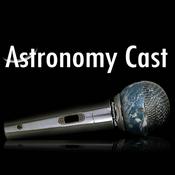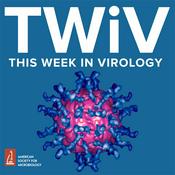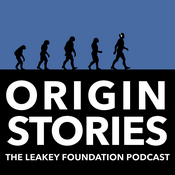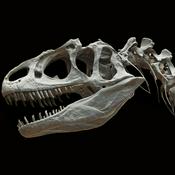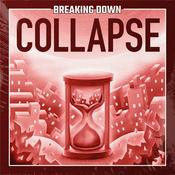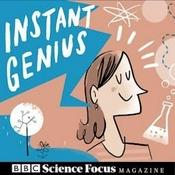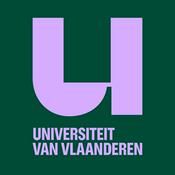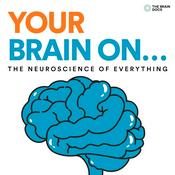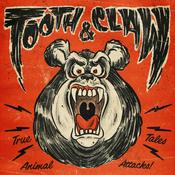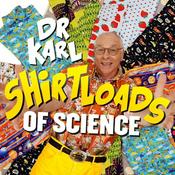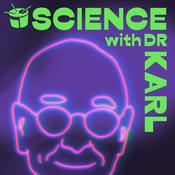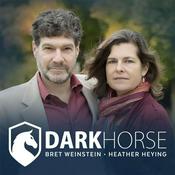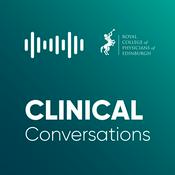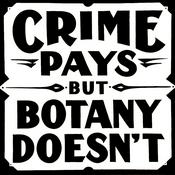36 episodes
- Beneath the surface, Aotearoa New Zealand’s oceans are under growing pressure. We’re taking too much good stuff out, putting too much bad stuff in, and the system is warming faster than it can adapt - with dire consequences that are often overlooked and ignored.
In this episode, we sit down with Shaun Lee for an honest conversation about the state of our marine environment. Despite being an ocean nation, less than 1% of our EEZ (exclusive economic zone) is fully or highly protected, placing us among the worst-performing countries globally.
We are missing the UN benchmark that aims for 30% protection by 2030 BY FAR, and this is reflected in the declines we’re seeing in ocean health.
While the picture is confronting and politically driven, there is genuine reason for hope. We also explore how marine ecosystems can recover when pressure is reduced, and how a combination of passive and active restoration shows promise in places like the Hauraki Gulf.
Here are some of the key topics we discussed:
The overall state of Aotearoa NZ’s marine environment.
The key drivers of biodiversity decline and habitat loss.
Why NZ is one of the worst countries when looking at marine protected areas.
Why reconnecting to the past to understand what diversity we used to have is important to grasp what we have lost.
The importance of marine reserves for biodiversity and awareness.
The difference between passive and active restoration.
How active restoration fast-tracks ocean recovery + examples.
How citizen science can contribute to monitoring ocean health.
And so much more…
Love the People Helping Nature Podcast? Get notified when new episodes go live - subscribe here: www.conservationamplified.org
🧑🦱About Shaun:
Shaun Lee is an Auckland-based environmental advocate and creative professional dedicated to marine restoration, pollution prevention, and large-scale ecological interventions within New Zealand’s coastal ecosystems. By leveraging his visual communication skills, he champions the protection and restoration of marine habitats. Shaun serves as a Trustee for several eNGOs, including the Revive Our Gulf Trust and the Northern New Zealand Seabird Trust.
🔗Learn more:
Shaun’s blog: https://blog.shaunlee.co.nz/about
Shaun’s sea floor mapping platform: https://seafloor.nz
Hauraki Gulf Forum: https://gulfjournal.org.nz
Revive Our Gulf Trust: https://ww.reviveourgulf.org.nz
Northern NZ Seabird Trust: https://www.nzseabirdtrust.com
🎙️About the podcast:
The People Helping Nature podcast is brought to you by Conservation Amplified, a registered New Zealand charity.
We are on a mission to help make conservation mainstream by amplifying the awesome stuff people are doing to help nature all around Aotearoa New Zealand.
Find out more about Conservation Amplified at www.conservationamplified.org. Shorebird Conservation: Connecting Habitats, Countries & People (EP35 with Keith Woodley)
24/1/2026 | 45 mins.In this episode, we sit down with Keith Woodley (MNZM) from Pūkorokoro Miranda Shorebird Centre, to unpack the incredible lifestyles of shorebirds, their habitats, and the work people are doing to protect them.
Here are some of the key topics we discussed:
Shorebird adaptations and why some of them migrate from the Arctic Tundra to NZ.
The diverse range of shorebird habitats worldwide and in Aotearoa.
Ngutu Pare (Wrybill): their adaptations, life cycle, threats, and conservation activities.
The importance of braided rivers of the South Island and their restoration.
Kuaka (Bar-Tailed Godwit): their adaptations, life cycle, threats, and conservation activities.
Why North Korea is an important migratory shorebird stronghold.
Keith’s experiences travelling to North Korea for shorebird conservation.
The importance of international collaboration to protect migratory waterbirds.
And much more…
Love the People Helping Nature Podcast? Get notified when new episodes go live - subscribe for emails here: https://www.conservationamplified.org
🧑🦱About Keith:
In 1993, while living on the Kapiti Coast, Keith Woodley stumbled into the role of resident manager at the Pūkorokoro Miranda Shorebird Centre, in the Firth of Thames. 32 years later, he is still there. With a degree in politics and history, this was not the future he envisaged. During this time, migratory birds have led him to numerous shorebird sites - in Australia, Indonesia, China, North and South Korea, and Alaska. There has emerged from these experiences, three books: Godwits: long-haul champions (2009), Shorebirds of New Zealand: Sharing the margins (2012) and In Pursuit of Champions: The Pūkorokoro Miranda Shorebird Centre story (2022).
🔗Learn more:
Website: https://www.shorebirds.org.nz
Instagram: https://www.instagram.com/pukorokoro_miranda_shorebirds
Facebook: https://www.facebook.com/MirandaShorebirdCentre
The East Asian-Australasian Flyway Partnership website: https://eaaflyway.net
New Zealand Birds Wader Count: https://www.birdsnz.org.nz/schemes/national-wader-count
🎙️About the podcast:
The People Helping Nature podcast is brought to you by Conservation Amplified, a registered New Zealand charity.
We are on a mission to help make conservation mainstream by amplifying the awesome stuff people are doing to help nature all around Aotearoa New Zealand.
Because when people are aware, connected to the ecosystems around them and care enough to take positive action, only then will we see lasting change.
Listen in and follow us to start or deepen your journey.
Find out more about Conservation Amplified at www.conservationamplified.org.Inside Te Nukuao Wellington Zoo: How Modern Zoos Actually Work (EP34 with Karen Fifield)
12/12/2025 | 1h 9 mins.Zoos haven’t always looked like they do today. The role of a "good zoo" is now about playing a crucial role in conservation and advocacy for animals - locally, nationally, and globally.
In this episode, we sit down with Karen Fifield, CEO of Te Nukuao Wellington Zoo and President of the World Association of Zoos and Aquariums (WAZA), to unpack what modern zoos do to protect wildlife beyond what you experience when visiting.
Karen shares how Te Nukuao Wellington Zoo contributes through wildlife hospital care, specialist breeding programmes, fieldwork, and community support - and why transparency, animal welfare, and long-term thinking are essential if zoos are to maintain public trust.
We explore how zoos work alongside community efforts, why some species are kept off display, how global animal welfare standards are set, and the role education plays in helping people take meaningful action for nature.
It’s a wide-ranging conversation about animals, people, ethics, and responsibility - and why good zoos are becoming more important, not less, in a changing world.
Here are some other key topics we discussed:
The role of storytelling and experience design when building zoo habitats
What Wellington Zoo does to support local community conservation efforts
How Wellington Zoo funds their important work
The very real threat of wildlife trafficking and why working together is critical in addressing it
Why it’s important to ‘think before you like’ social media content about wild animals interacting with humans
How to avoid visiting a bad zoo
Why being more sustainabile in our everyday lives is a way that everyone can help wildlife conservation
And much more…
👩About Karen:
Originally from Australia, Karen’s zoological career began at Taronga Conservation Society Australia and Zoos Victoria before she joined Te Nukuao Wellington Zoo in 2006. Alongside her Chief Executive role, she has also been the President of the Zoo and Aquarium Association Australasia (ZAA) and is currently the President of the World Association of Zoos and Aquariums (WAZA).
In 2023, Karen was recognised as one of the Power 10 Zoo and Aquarium Blooloop Top 50 Influencers internationally, and in 2016 became a Member of the New Zealand Order of Merit MNZM for services to Business and Animal Welfare.
Under Karen’s leadership, Te Nukuao has celebrated many achievements. In 2009, Te Kōhanga The Nest, a state-of-the-art veterinary hospital, opened. The Zoo was the first Toitū carbon zero-certified zoo in the world in 2013 and won the inaugural WAZA Environmental Sustainability Award in 2018.
In 2024, Mana Whenua gifted the Zoo its te reo name, Te Nukuao Tūroa o Te Whanganui a Tara, which tells the story of the Zoo’s commitment to conservation and care for communities, wildlife and wild places.
🔗Learn more:
Website: www.wellingtonzoo.com
WAZA website: www.waza.org
🎙️Learn more about the podcast at www.conservationamplified.orgProtecting Alpine Wētā & Lizards (EP33 with Samuel Purdie, Southern Lakes Sanctuary)
28/11/2025 | 55 mins.The smaller critters often get the least attention - yet they make up the foundations of life in our ecosystems.
In Aotearoa New Zealand, invertebrates and lizards help recycle nutrients, disperse seeds, pollinate native plants, and support the whole food web. And they’re also some of the hardest animals to actually understand and protect.
In this episode, we head back to the Southern Lakes Sanctuary for a round two with their herpetologist and invertebrate specialist, Samuel Purdie, who pulls back the curtain on what it really takes to look after species like the Southern Alps giant wētā (Deinacrida pluvialis).
These rare alpine insects survive in harsh, often freezing landscapes and are now classified as nationally endangered.
Monitoring methods like tracking tunnels, mark-recapture studies, cameras, and eDNA all tell different parts of the story. And without careful calibration, they can paint wildly different pictures.
Sam also gives an inside look at the technical and physical reality of alpine fieldwork: night surveys on steep terrain, tents flooding, hazardous cliffs, and the huge challenge of getting reliable data.
It’s an eye-opening conversation about some of the least visible yet critical species in the Southern Lakes ecosystem, and why paying attention to the small stuff matters more than most people realise.
Here are some of the key topics we discussed:
Why invertebrates and lizards are foundational to healthy ecosystems
What we know about the Southern Alps giant wētā, their alpine adaptations, and threats they face
How climate change is shrinking alpine habitats and the consequences
Why mice are a major, underestimated threat that should be included in Predator Free 2050
The complexities of doing monitoring properly that are often overlooked
The physical and rugged reality of alpine fieldwork
Why inconsistent monitoring methods can mislead conservation efforts
How habitat modification and fire pose risks to lizard populations
Practical ways the public can help
And much more…
🧑🦱About Samuel:
Samuel Purdie is a herpetologist, science educator, and award-winning wildlife photographer from Rotorua. Sam holds a BSc in Zoology and Ecology and a PGDip in Wildlife Management from the University of Otago, and has recently completed his MSc focusing on native alpine lizards.
A lifelong enthusiast for “creepy crawlies,” Samuel spends much of his time turning over rocks in search of New Zealand’s lesser-known species. As Biodiversity Projects Coordinator at Southern Lakes Sanctuary, he's involved in planning and monitoring for these cryptic native lizards and shares his striking wildlife photography and species knowledge across Southern Lakes Sanctuary's media channels.
🔗Learn more:
Southern Lakes website: www.southernlakessanctuary.org.nz
Instagram: www.instagram.com/southernlakessanctuary
Facebook: www.facebook.com/SouthernLakesSanctuary
Sam’s website: www.samuelpurdiewildlife.com
🎙️Learn more about the podcast at www.conservationamplified.orgScaling Up Conservation in the Southern Lakes (EP32 with Paul Kavanagh, Southern Lakes Sanctuary)
14/11/2025 | 41 mins.The Queenstown Lakes District is one of the most spectacular places on Earth - a picturesque landscape of mountains, lakes, and remote valleys where nature still feels wild.
But beneath the beauty lies a conservation challenge: around 40 native species in the region are threatened or at risk of extinction.
For decades, local communities have stepped up to protect these landscapes and wildlife, powered by volunteers putting in the hard yards. Now, Southern Lakes Sanctuary is helping to take that effort to the next level, supporting the mahi of six long-running conservation groups representing nearly 100 projects, landowners, businesses and hundreds of volunteers across 198,000 hectares, with plans to scale to 850,000HA over time.
In this episode, CEO Paul Kavanagh pulls back the curtain on what happens when communities get the backing they need: skilled staff, smart tech, and funding that lets them go further together.
From self-resetting traps to eDNA monitoring and beyond, this work is helping species like kea and mōhua return to the landscapes they once called home.
Takahē, once declared extinct, now roam the Rees Valley again - a testament to what’s possible through collaboration.
It’s a story of people, progress, and pragmatic action, showing how skilled professionals and passionate locals can work hand in hand to protect Aotearoa’s wildlife at scale.
Here are some of the key topics we discussed:
How six established conservation groups joined forces to form Southern Lakes Sanctuary
Managing volunteer fatigue by adding professional support to complement volunteer-led mahi
Expanding predator control from 6,400 to 13,000+ traps and removing more than 70,000 introduced animals
Why measuring biodiversity outcomes matters more than counting traps and the role of robust monitoring
Threatened species management across the project area
The critical role of sustainable, long-term funding and partnerships with business and philanthropy
How AI-enabled, self-resetting traps and live mesh networks are transforming remote predator control
The importance of working in urban and peri-urban areas as well as the back country
And much more…
🧑🦱About Paul:
Paul worked as a field biologist in Ireland after graduating with an Honours degree in Zoology from University College Dublin. He moved to NZ from Ireland in 2009 to further his career in conservation. Paul was General Manager of the Kiwi Birdlife Park, a wildlife park dedicated to preserving some of Aotearoa’s unique native species, for over 12 years before his appointment to his role as CEO with the Southern Lakes Sanctuary.
🔗Learn more:
Website: www.southernlakessanctuary.org.nz
Report Takahē Sightings: www.southernlakessanctuary.org.nz/takahe-sightings
Instagram: www.instagram.com/southernlakessanctuary
Facebook: www.facebook.com/SouthernLakesSanctuary
🎙️Learn more about the podcast at www.conservationamplified.org
More Science podcasts
Trending Science podcasts
About People Helping Nature Podcast
The People Helping Nature Podcast is all about sharing the incredible stories of people who are helping nature. We do this by bringing a megaphone to the world of conservation by featuring people from all walks of life who are doing interesting and important things to help nature thrive. We aim to make it easy for everyone to learn, understand, take action, and feel like they’re a part of the solution. Our vision is simple: make conservation mainstream... Produced by the Conservation Amplified Charitable Trust. Find out more & join the community at www.conservationamplified.org.
Podcast websiteListen to People Helping Nature Podcast, Hidden Brain and many other podcasts from around the world with the radio.net app
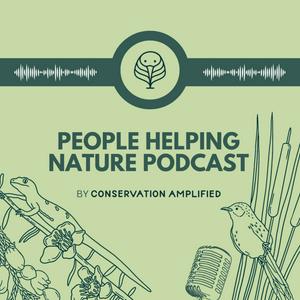
Get the free radio.net app
- Stations and podcasts to bookmark
- Stream via Wi-Fi or Bluetooth
- Supports Carplay & Android Auto
- Many other app features
Get the free radio.net app
- Stations and podcasts to bookmark
- Stream via Wi-Fi or Bluetooth
- Supports Carplay & Android Auto
- Many other app features


People Helping Nature Podcast
Scan code,
download the app,
start listening.
download the app,
start listening.






